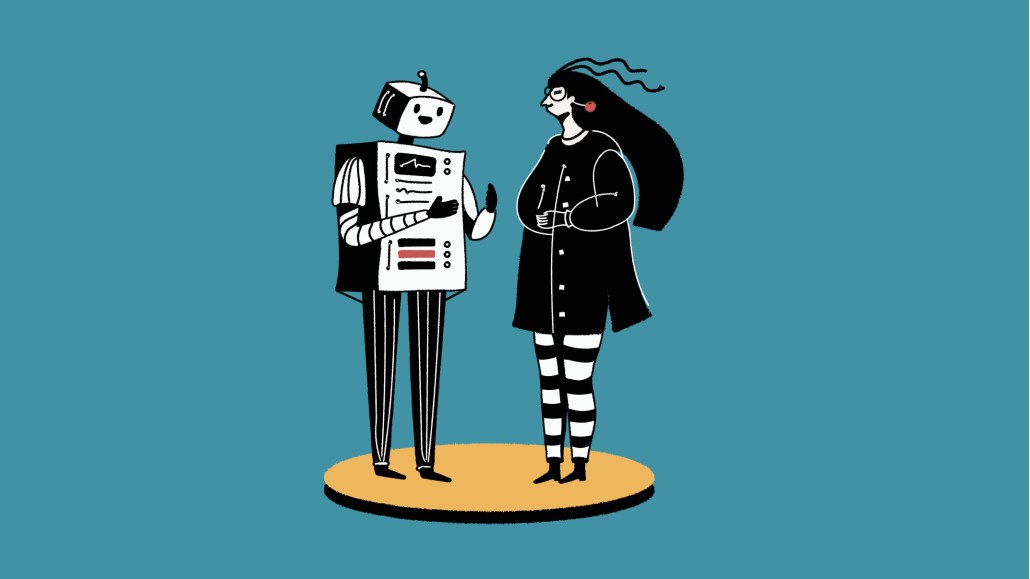Secure your place at the Digiday Publishing Summit in Vail, March 23-25
AI-powered professional learning: Inside the launch of Deloitte’s Scout

Editor’s Note: This story has been updated and corrected.
Deloitte has launched Scout as part of its Project 120, the company’s $1.4 billion investment in professional development. The AI-powered learning assistant aims to personalize learning while ensuring privacy, transparency, and responsible innovation remain at the forefront.
In a conversation with WorkLife, Anthony Stephan, chief learning officer at Deloitte U.S., spoke about how the tool addresses the challenges of modern professional development.
What pain points in Deloitte’s existing L&D ecosystem led to Scout’s development? Can you share any data on how professionals were engaging with learning resources before Scout?
Deloitte professionals have long had access to a rich array of learning resources, but finding the right content at the right moment could be time-consuming. Discoverability and relevance were the biggest challenges, as professionals often spent too much valuable time searching for content.
Recognizing this opportunity, we set out to make access to learning more personalized, intuitive, and agile, continuously aligning with how people actually grow in today’s dynamic work environment. Scout was built to deliver real-time, curated learning tailored to each professional’s role and goals. It helps ensure learning is not a one-time event but an ongoing, adaptive journey making development easier, faster, and more impactful across Deloitte’s workforce.
How are you measuring Scout’s success beyond engagement metrics? What outcomes (retention, promotion rates, project performance) are you tracking?
In this first phase, success is centered on awareness, adoption, and repeat engagement, as Scout becomes a natural part of professionals’ daily development. Metrics such as searches, click-throughs, and completion of recommended learning help gauge early traction, alongside direct feedback through surveys and in-platform ratings.
Beyond engagement, Deloitte is focused on how Scout accelerates upskilling and reskilling, supports internal mobility, enhances the user experience, and improves learner performance. These outcomes demonstrate the measurable value of embedding AI-driven, personalized learning into the broader talent experience.
How does Scout’s predictive learning capability work in practice? What signals or data points does it use to anticipate skill gaps before they become critical?
Scout leverages information such as a professional’s career level, business, learning goals, and prior learning activity to surface relevant and timely content, all while complying with Deloitte’s strict privacy standards. Its design enables professionals to access what they need when they need it, whether they’re starting a new role or pursuing ongoing development.
As professionals engage, those same data points, combined with real-time feedback and learning usage patterns, help Scout continuously refine and personalize future recommendations. Over time, these signals enable the assistant to anticipate emerging learning needs and create adaptive, intelligent pathways that evolve alongside each professional’s development journey.
How does Scout address concerns around data privacy or algorithmic bias?
Privacy and responsible AI use were foundational to Scout’s design. All data use complies with Deloitte’s rigorous privacy standards, and individuals maintain control over their preferences and experience.
How do you see Scout influencing talent retention and recruitment strategies, and how do you see personalized AI-driven learning in general becoming a competitive advantage in the war for talent?
Learning has always been central to Deloitte’s culture and long-term people strategy. When professionals have access to continuous, personalized development, they’re more confident, engaged, and empowered to grow, factors that directly strengthen retention. Scout reinforces Deloitte’s skills-based transformation by putting development directly in professionals’ hands and helping them adapt in a rapidly changing world of work.
People are drawn to organizations that invest meaningfully and consistently in their growth. As a key innovation from Project 120 — Deloitte’s $1.4 billion investment in its people, Scout reflects Deloitte’s leadership and commitment to developing a future-ready workforce that blends enduring human capabilities with technology-driven insight, a combination that fuels both retention and competitive advantage.
More in Media

How creator talent agencies are evolving into multi-platform operators
The legacy agency model is being re-built from the ground up to better serve the maturing creator economy – here’s what that looks like.

Why more brands are rethinking influencer marketing with gamified micro-creator programs
Brands like Urban Outfitters and American Eagle are embracing a new, micro-creator-focused approach to influencer marketing. Why now?

WTF is pay per ‘demonstrated’ value in AI content licensing?
Publishers and tech companies are developing a “pay by demonstrated value” model in AI content licensing that ties compensation to usage.








